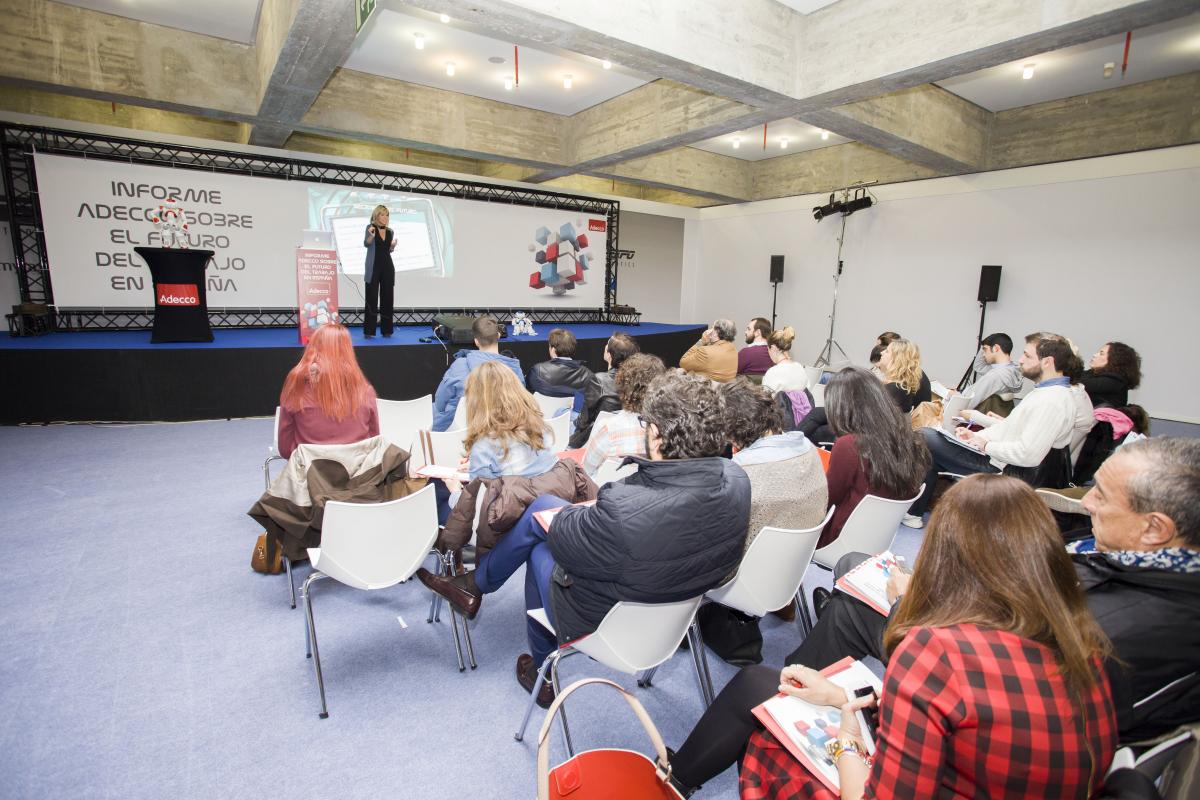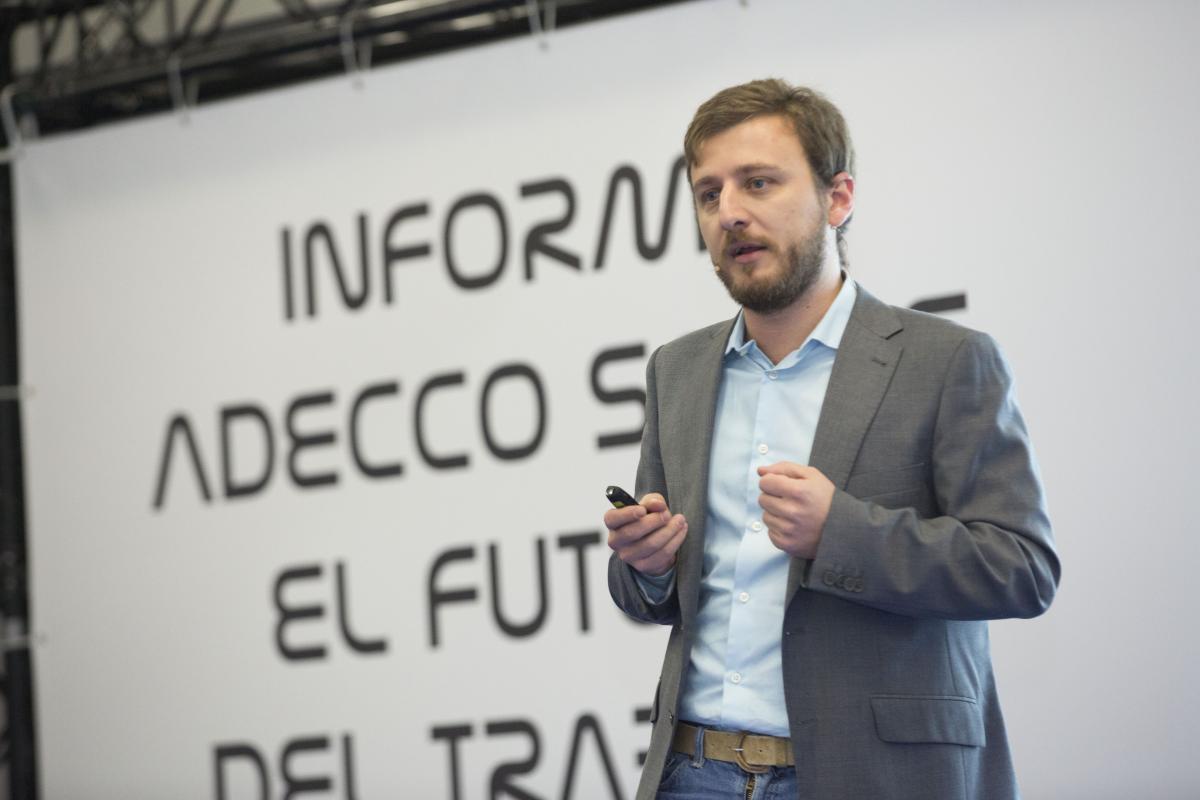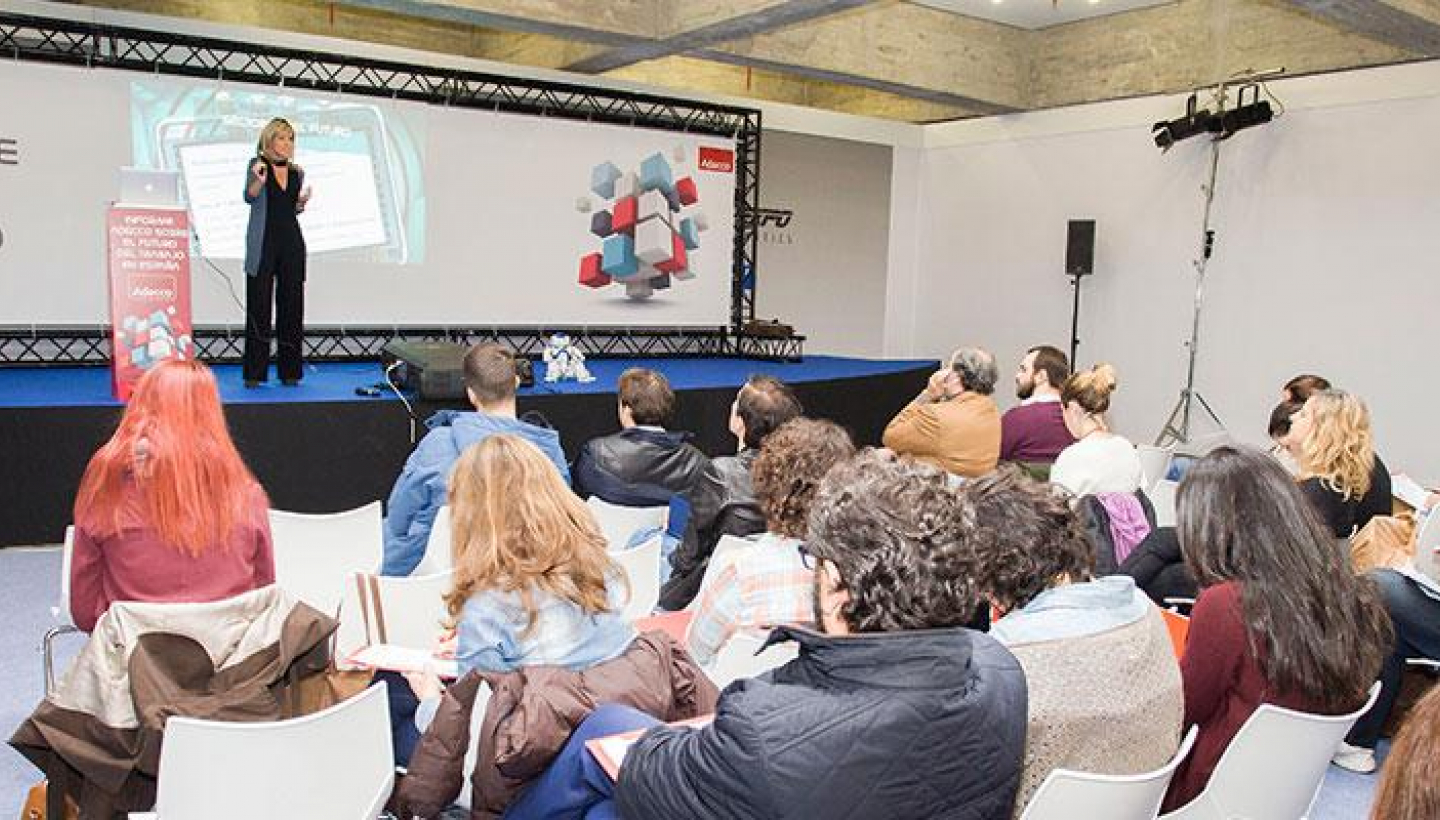We published a study, realized in collaboration with Adecco, which forecasts greater job creation in sectors like technology and highlights a surge in changes related to the dissolution of the working day.
The challenge
The spread of new technologies, the rise of automation, the arrival of the so-called millenials on the job market and the softening of the divide between free time and work are generating significant changes. Both employers and employees are expressing new needs. The Human Resources company Adecco hired us to prepare an analytical strategy and to study the job market in this new, technological environment, the results of which were embodied by the Adecco Report on the Future of Employment in Spain.

While tackling studies like these, we leverage all of our previous knowledge acquired through our publications MIT Technology Review, Spanish Edition and Harvard Business Review, as well as their associated events (EmTech, Innovatorsunder35 and HBR Summit). We also employed a research methodology of our own design, based on a combination of prior knowledge and personalized and detailed interviews that combine both quantitative and qualitative factors. "We are looking to define and evaluate the factors with the greatest potential for impacting current and future job market trends," as our project leader Laura García explains.

Our solution
The report, which was presented during the robotics trade fair Global Robot Expo in Madrid (Spain), allowed us to reveal key data, like the prevision that by 2020, European companies will create 900.000 new jobs within the digital sector. The sectors that lead this generation of employment are technology and R&D&I (according to 92,5% of the experts surveyed), tourism and entertainment (80%) along with healthcare (75%) and the energy sector (60%).
These conclusions are the result of a combination of the aforementioned study, statistical data from sources like Eurostat and the National Institute of Statistics and personal interviews conducted with 40 Human Resources managers from different companies and sectors in Spain.
The study also addresses the figure of workers in 2025. According to the experts surveyed, this figure will be centered more around the development of transversal skills by different profiles. As a result, hiring requirements will also change: interpersonal skills and the right fit with the company´s corporate culture will be valued more than training or experience.
From the perspective of Adecco´s marketing and communications director, Margarita Álvarez, technological changes are often presented as if they represent a "great tidal wave", when really they happen much more gradually. "For the first time, we find ourselves in a company where the new generations can actually teach the previous generations," she said during the presentation of the report. The need for specialized training adapted to this new panorama was another key point: "Spain is not prepared from this point of view," she said.
Along the same lines, the general director of Opinno Europe, Tommaso Canonici, drew on the history of technology to remind us that it "has made us more productive, but also more dependent."
For this very reason, according to the report, it has been calculated that the demand for flexibility from employers will be one of the trends with the highest impact on labor relations (with a score of 4.7 out of 5). The new types of relationships between employees and companies (4.68) as well as the new formats for employment and collaborations (4.57) will redefine the relationships between employees and their employers.
This work builds upon other specialized reports that we have produced, such as the Future of Mobility and Keys to a Successful Business Venture in Spain. Our idea is to continue contributing, through the production of these reports, to a greater understanding of the new, digital environment and its impact on different aspects of society, like the economy.
You can download the report through the following link (in spanish).



